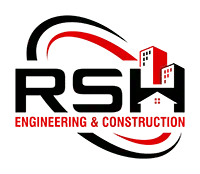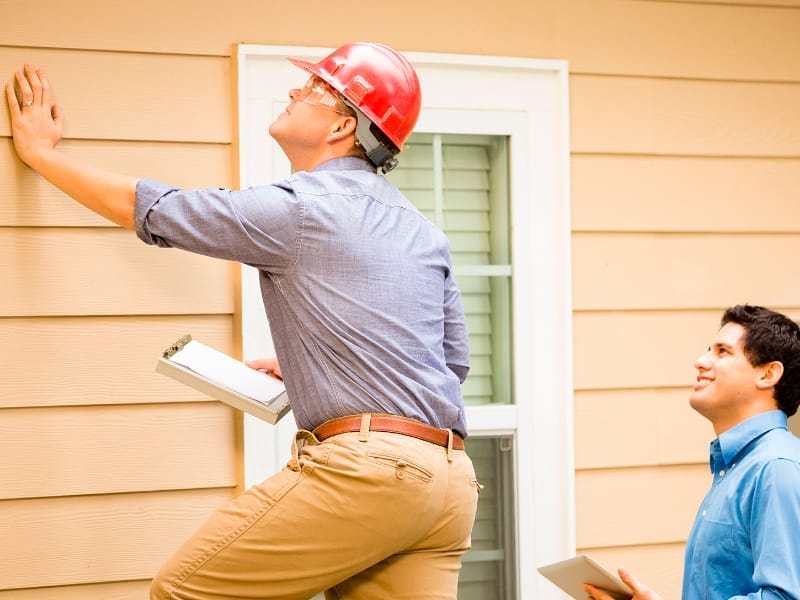Buying a home is one of the most significant financial decisions you’ll ever make, and a home inspection is a critical part of the process. After the inspection is completed, you may find yourself needing to negotiate repairs with the seller. This phase can be challenging, especially if the inspection uncovers multiple issues. Knowing how to handle home inspection repair negotiations is essential to ensure you get a fair deal.
With this submission’s help, you’ll get through seven tips for successfully negotiating repairs after a home inspection.
Tips for Negotiating Repairs After a Home Inspection
1. Understand the Home Inspection Report
The first step in home inspection repair negotiations is to review the home inspection carefully. This report will highlight any problems discovered during the inspection, from minor cosmetic issues to significant structural concerns.
Understanding which critical and less urgent issues will help you prioritize what to negotiate.
For example, foundation inspection results or house structural inspection findings are usually top priorities, as these issues can be costly and affect the home’s safety. On the other hand, more minor issues like a leaky faucet may not require urgent attention.
“The home inspection report is your key tool in negotiations. It gives you the necessary insight to ask for repairs or request concessions from the seller.” —Real Estate Expert.
2. Focus on Major Issues
When home inspection repair negotiations are in process, it’s essential to focus on the significant issues that impact the home’s safety, structure, and functionality. Some common examples include:
Foundation Repair:
Issues with the foundation can affect the entire home structure, so it’s essential to address these problems immediately.
Roof Damage:
A damaged roof can lead to leaks and further damage inside the house.
Electrical and Plumbing Systems:
Faulty wiring or plumbing issues can be hazardous and should be repaired before you move in.
You should not waste time on more minor cosmetic repairs, as these can be handled later or used as a minor negotiation point. Instead, prioritize issues that could lead to costly repairs down the line or present safety risks.
3. Be Prepared for After House Inspection Negotiations
After receiving the inspection report, you’ll need to initiate home inspection repair negotiations with the seller after the house inspection. This process can be delicate, as you don’t want to overwhelm the seller with too many repair requests. Instead, approach the conversation with a clear list of priorities and realistic expectations.
Start by creating a list of the most critical repairs you want to ask for. Be reasonable in your demands— expecting the seller to fix every minor issue might not be practical, especially in a competitive market. A well-thought-out request focusing on essential repairs will likely be met with a positive response.
“Negotiation is an art. Be fair and reasonable in your requests, and you’re more likely to agree with the seller.” —Negotiation Specialist.
4. Ask for Repairs After Home Inspection
Once you’ve reviewed the inspection report and identified the most pressing issues, it’s time to ask the seller for repairs. Being specific and precise when asking for repairs after home inspection is essential. Rather than simply stating that the roof is damaged, ask for a professional roofer to assess the issue and make necessary repairs.
You can also request estimates from contractors to provide to the seller. Documentation outlining the cost of repairs can make your negotiation more effective, as it gives the seller a clear idea of what needs to be done and how much it will cost.
5. Know When to Accept Concessions Instead of Repairs
Sometimes, the seller may not want to handle the repairs themselves. Instead, they may offer you a financial concession, such as reducing the sale price or offering a credit toward closing costs. If the seller provides concessions, consider whether this is an excellent alternative to having the repairs done before the sale is finalized.
For example, if a foundation repair is required, you should oversee the work yourself after purchasing the home. This way, you can ensure the job is done to your standards. However, make sure the financial concession is enough to cover the repair costs.
6. Consult With Local Home Inspectors and Contractors
It’s always a good idea to consult with local home inspectorsor contractors when you’re in the process of negotiating after home inspection. An inspector can help clarify which repairs are essential estimates for fixing specific issues.
Professional opinions and quotes from trusted local home inspectors can strengthen your negotiation stance. If the seller tries to downplay the severity of an issue, you can present professional opinions to support your case.
7. Use a Home Inspection Checklist
Creating a home inspection checklist can help you stay organized during negotiations. This checklist should include the inspection report’s significant issues, estimated repair costs, and whether the seller has agreed to fix them or offer a concession.
A checklist ensures you don’t overlook any critical issues and helps keep the negotiation process on track. If any agreed-upon repairs need to be made before closing, the checklist can also serve as a reference to ensure everything is completed.
Common Negotiation Tactics
When negotiating repairs, it’s helpful to know a few common tactics that can lead to successful outcomes:
Ask for repairs before the final price agreement:
Sometimes, bringing up repairs early can lead to the seller adjusting the sale price before the final contract is signed.
Request contractor quotes:
Present professional estimates for repair costs to show that your requests are based on factual information.
Consider the market conditions:
If it’s a seller’s market with few available homes, you might not want to be too demanding with repairs, as the seller could move on to another buyer.
Conclusion
Negotiating after a home inspection can feel overwhelming, but it doesn’t have to be. By understanding the inspection report, focusing on significant issues like foundation repair, and working with local home inspectors or contractors, you can successfully navigate home inspection repair negotiations. Stay organized with a checklist, and be reasonable in your requests, and you’ll be more likely to reach a fair agreement with the seller.
Remember, the goal is to ensure your new home is safe and structurally sound. While some negotiations may lead to the seller making repairs, others might result in financial concessions. A successful negotiation will leave you confident about your new investment.
Ready to be a part of RSH Engineering & Construction? Yes, contact us today.





